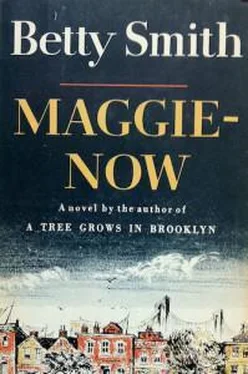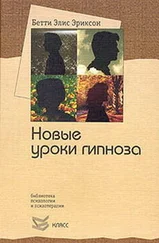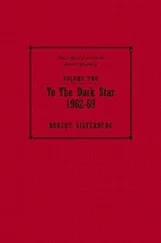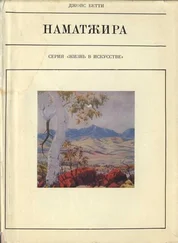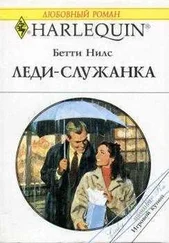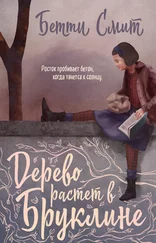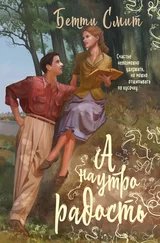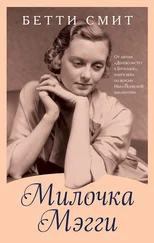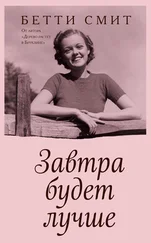Бетти Смит - Maggie-Now
Здесь есть возможность читать онлайн «Бетти Смит - Maggie-Now» весь текст электронной книги совершенно бесплатно (целиком полную версию без сокращений). В некоторых случаях можно слушать аудио, скачать через торрент в формате fb2 и присутствует краткое содержание. Жанр: Проза, на английском языке. Описание произведения, (предисловие) а так же отзывы посетителей доступны на портале библиотеки ЛибКат.
- Название:Maggie-Now
- Автор:
- Жанр:
- Год:неизвестен
- ISBN:нет данных
- Рейтинг книги:3 / 5. Голосов: 1
-
Избранное:Добавить в избранное
- Отзывы:
-
Ваша оценка:
- 60
- 1
- 2
- 3
- 4
- 5
Maggie-Now: краткое содержание, описание и аннотация
Предлагаем к чтению аннотацию, описание, краткое содержание или предисловие (зависит от того, что написал сам автор книги «Maggie-Now»). Если вы не нашли необходимую информацию о книге — напишите в комментариях, мы постараемся отыскать её.
Maggie-Now — читать онлайн бесплатно полную книгу (весь текст) целиком
Ниже представлен текст книги, разбитый по страницам. Система сохранения места последней прочитанной страницы, позволяет с удобством читать онлайн бесплатно книгу «Maggie-Now», без необходимости каждый раз заново искать на чём Вы остановились. Поставьте закладку, и сможете в любой момент перейти на страницу, на которой закончили чтение.
Интервал:
Закладка:
"Oh, Mrs. Schondle," Mary called back. "Hello! I missed you last year."
"Yeah. I wasn't here," said Mrs. Schondlc, waddling over.
Mrs. Schondle, a stout vie omen to start with, wore a black dress several sizes too large for her. The neckline gaped loosely, exposing her chest and the upper part of her breasts, which were already burned a lobster red from sudden exposure to the sun for a few hours, after a year of living indoors.
She wore a lumpy black hat draped with thick black mourning veils. The hat had slipped down over one ear and the veils were hanging wild. This gave her beet-red, smiling face a what-thehell-do-I-care look.
"Yeah, I wasn't here last year," she explained. "Because my oldest daughter vitas down from Jamaica. You know.
The one by my first husband? She didn't want to come to the cemetery with me, being's," she nodded toward her grave, "Mr. Schondle was the stepfather. You know. Not the real father? Anyways, I thought I'd stay home with her being's I don't see her much because," her voice dropped to a whisper, "I don't get along so good with him her husband. He's. . " she looked around carefully to make sure no one ~ Ise v as listening. "he's a Prattisssent! F I
— I I One of them kind, you know. What thinks every time a Catholic boy is born they bury a gun under the church for him?"
"That's too bad," said Mary.
"Oh, I got my troubles," said Mrs. Schond]e cheerfully.
"But you look good, Miz Moore."
"You look fine, too, Mrs. Schondle."
"Oh, I'm the kind w hat never changes. I look the same like I looked when I was first married. Everybody tells me that," she said. "But your little girl, now! My, she got big!
Two years ago, she was a baby."
"They shoot up fast, ' said Mary.
"Too fast. You slave for them and sacrifice and the first thing you know, they're young ladies and married."
A diversion was caused by a mother yelling at her sons who were playing tag and running back and forth over the family plot a few graves away.
"Now, Frankie," said the mother, "I told you before.
Stop running over your grandmother. Do you want to have hard luck?" In answer, the boys ran over the grave again.
"All right, then," said the mother reasonably enough. Then she hauled off and gave each kid a slap alongside the ear.
"The next time you'll listen," she said.
"Tech! Tsch!" commented Mrs. Schondle. "The way children is brought up nowadays. No respect for nothing nobody. Living or dead." She straightened her hat. It fell over the other ear. "Well, I better leave you plant your plant," she said. "Say! Your ive-ree's growing good. Soon your father will have a whole ive-ree blanket.
I wish I had luck with ive-ree. But it won't grow for me."
Hat bouncing, veils quivering, she made her way back to Mr. Schondle's grave.
Maggie-Now had the grave raked of debris. She had a little mound of trash. "Where'll I put it, Mama?"
"Over there on that big pile where other people are putting their trash."
They pulled up the dry stalk of last year's geranium and planted the new one. I\laggie-Now made a dozen trips with her bucket to one of the nearby spigots. They planted the new ivy shoots. They commented on how well the last year's planting ~ 1121
had taken hold. The final thing was pinching off six sprigs of the established ivy. Mary would root them in water, plant them and nurture them through a summer, fall and winter and plant them on the grave come next Decoration Day.
All the things were stowed away, including the flower pot, in the net shopping bag. Mary and Maggie-Now went to sit on a nearby stone bench. They sat in silence for a while. Mary thought of her father. She thought of the passage of time.
It is ten years, she thought, since ='e laid him at rest. And the combs he bought me more than thirty years ago are still new. Things last longer than people.
"It's time now," said Mary.
Mother and daughter stolid by Michael Moriarity's grave.
Mary clasped her hands, bowed her head and said a prayer for the dead. Maggie-Now joined her in the amen. Mary took a long, last look at the engraved name, Michael Moriarity, and they took their leave. They walked over to say good-by to Mrs. Schondle.
"You going for pot cheese?" asked Mrs. Schondle.
Mary hesitated. "Yes."
"Then do you care if I go along?"
"Why, we'd love to have you. Wouldn't we, Maggie-Now?"
The girl scowled. She had looked forward to the trip all year especially eating alone with her mother in the restaurant. Now that Mrs. Schondle had to spoil it.
"Say yes," whispered her mother. "It's only a white lie."
"Yes," said Maggie-Now sullenly.
"And smile." Maggie-Now gave Mrs. Schondle a distorted grimace.
"That's awfully nice of youse," said Mrs. Schondle. "It's just that I don't like to eat alone. I always got to eat alone when I'm home."
It took them a long time to get out of the cemetery because Mrs. Schondle walked slowly and had to stop from time to time to get her breath and, besides, she liked to stop and look at things.
They paused by the new graves; a dozen or so the dead of the week. The raw-soil mounds were still high. A couple of men were working efficiently and briskly, stripping dead foliage and withered flowers from the funeral pieces. They piled up the
[~ ~3 1
wire forms, pillows, stars, crosses and hearts. They sold these frames to the florists to make new floral pieces for new dead people. The men paid for the privilege of salvaging these wire frames.
A group of little girls stood by patiently waiting for the ribbons from the pieces. They were of the neighborhood and they got their hair bows that v. ay. The men gave the big girls the black ribbons, the in-between girls the lavender, and the little girls ot the white ribbons.
"Want a hair bow, girlie?" said one of the men, proffering a lavender ribbon to Maggie-Now.
The girl shuddered and squeezed tip close to her mother. "No," she said.
"No, what?" prodded her mother.
"No, thank you."
The restaurant was across the street from the cemetery.
It was nearly a block long v. ith open doors every twenty feet or so. Inside it was dim and cool. White-aproned waiters wove in and out among the tables and a joyous babble of voices rose and fell. It was very festive even though most of the women wore black dresses.
They had barely seated themselves at a little round table when a waiter materialised and gave the table top a ritual wipe with his napkin.
"What s yours, ladies " he asked.
"I'll have pot cheese and chives," said Mary. "And coffee.' "Make mine the same," said l\lrs. Schondle. "Only beer, instead-a coffee. And sour cream on the side."
"And the young lady?" asked the waiter.
Maggie-Now was about to open her mouth and order a piece of pound cake with chocolate ice cream on top and a bottle of strawberry soda, when Mary said: "She'll have just a cream soda. ' "But, Mama. ." wailed Maggie-Now.
"Never mind." Mary pressed the girl's thigh under the table. 'You can have the nickel deposit from the flower pot and buy anything you like."
"All right," sighed Maggie-NoN`-.
Mary did some quick figuring. She had fifty cents for her 1 1141
lunch and Maggie-Now's, a nickel tip for the waiter, ten cents carfare home and ten cents for emergencies. She had enough money to be sure, but four years ago, the time she had lunched with Mrs. Schondle, the poor woman had been fifteen cents short and Mary had had to pay it.
Читать дальшеИнтервал:
Закладка:
Похожие книги на «Maggie-Now»
Представляем Вашему вниманию похожие книги на «Maggie-Now» списком для выбора. Мы отобрали схожую по названию и смыслу литературу в надежде предоставить читателям больше вариантов отыскать новые, интересные, ещё непрочитанные произведения.
Обсуждение, отзывы о книге «Maggie-Now» и просто собственные мнения читателей. Оставьте ваши комментарии, напишите, что Вы думаете о произведении, его смысле или главных героях. Укажите что конкретно понравилось, а что нет, и почему Вы так считаете.
